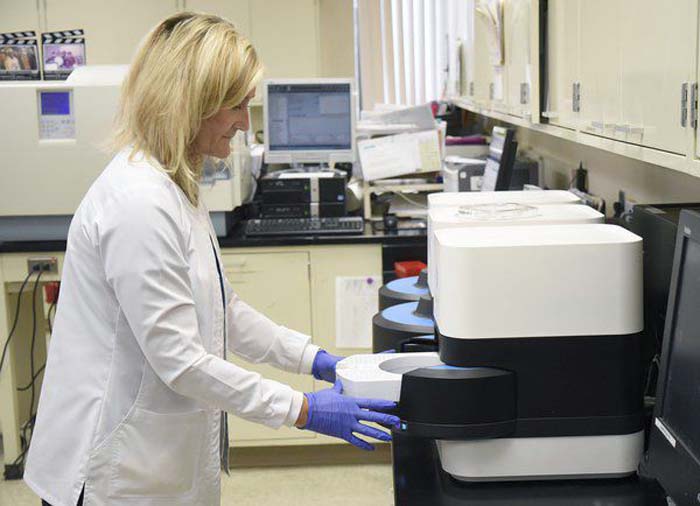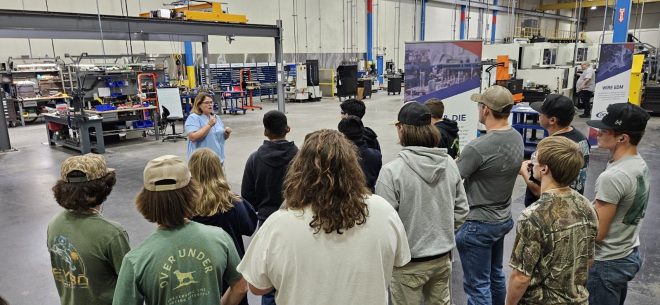Hospital unveils new lab equipment to fight infections
Published 10:52 am Wednesday, June 13, 2018

- Matt Hamilton/Daily Citizen-NewsSandra McArthur, microbiology supervisor at Hamilton Medical Center, operates the Accelerate PhenoSystem. Officials say the system can identify which bacteria is causing an infection much more quickly than previous technology.
DALTON, Ga. — In battling sepsis, time is of the essence, says Dr. Jorge M. Oliver, laboratory medical director for Hamilton Health Care System.
“Sepsis is a condition in which there are harmful bacteria and toxins in the body’s blood and tissues,” he said. “It can cause damage to the body, organ failure and even death.”
Kenny Lowery, Hamilton’s director of laboratory services, said that in the past hospital staff diagnosed the bacteria causing sepsis by doing a blood culture, which could take 48 hours.
On Tuesday, Hamilton held a ribbon cutting for the Accelerate Diagnostics PhenoSystem, new diagnostic technology that will dramatically slash that time to just a few hours at most. Oliver said that can speed up treatment and reduce the damage to the body.
“If we can identify the causative organism as early as possible and identify what antibiotics will work on that organism as quickly as possible, we are giving the patient the ultimate chance to survive,” said Oliver.
Hamilton officials cut the ribbon for new equipment that helps fight infections
Jessica Whitley, clinical director of pharmacy at Hamilton Medical Center, explained that some antibiotics work better on different bacteria. She said knowing what bacteria is causing an infection allows them to target the best antibiotic more quickly.
Ron Price, Accelerate Diagnostics senior vice president and head of commercial operations for North America, said that while speeding up treatment is the key benefit of the new technology, it also helps reduce the overuse of antibiotics by making it less likely that antibiotics that aren’t effective will be prescribed.
Lowery said the technology will benefit Hamilton’s patients tremendously.
“We are the second hospital in Georgia, and the only hospital in this region (north Georgia and southeast Tennessee), to have this equipment,” he said.





